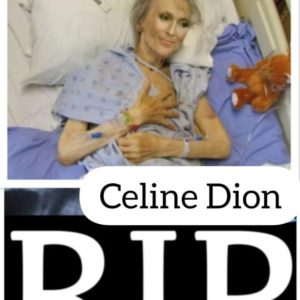Stories of wealthy Hollywood celebrities battling health problems remind us that they are just like the rest of us.
In a recent interview with Dr. Phil, Academy Award-winning actress Kathy Bates opened out about her battle with cancer and the struggles she faced while remaining silent.
Despite her notoriety, Bates played a courageous heroine who overcame cancer twice in a true story.
In 2012, she declared that she had successfully fought ovarian cancer and had been cancer-free for nine years.


However, she was devastated to learn that she had breast cancer a few weeks ago. She compared receiving this heartbreaking prognosis to being in a room that was more terrifying than anything from an American horror story. Ovarian cancer had already caused Bates to experience hardships by 2003. She had difficult surgery and nine months of chemotherapy, all the while keeping her battle a secret. “It really took a lot out of me, but I didn’t want anyone to know,” she said, sharing the information with just a small group of individuals, including individuals magazine.
Because of her perseverance and strength, she was able to overcome ovarian cancer and be cancer-free for an extended period of time. Her battle was far from over, though, when her physician informed her that the cancer had returned, this time in her breast. Bates said that breast cancer runs in her family, so she wasn’t entirely astonished by this setback. In order to stop her breast cancer from spreading, Bates made the decision to have two mastectomys. Rather than allowing her tragedy to crush her spirit, she used it as motivation for other women.

Despite adversity, Bates maintained her lively personality and sense of humor. She joked, “I miss ‘Harry’s Law’ more than my breasts,” and thanked her fans for sticking with her through her worst moments. Bates no longer has cancer, but she now has lymphedema as a result of having her lymph nodes removed.
This condition, which causes discomfort and edema and makes daily living difficult, affects around 30% of breast cancer survivors. However, Bates refuses to let it define who she is. She shares her story openly in an attempt to encourage other women to prioritize regular check-ups and to let them know they’re not fighting this battle alone. Furthermore, Bates has consented to speak on behalf of the Lymphatic Education and Research Network (LE&RN) by utilizing her position to support those who suffer from lymphedema and raise public awareness of the illness.
Bates has become stronger and more purposeful as a result of her ordeal. “I’m appreciative that my struggles have given me a feeling of direction,” she reflects. It’s interesting how things work out that way. The interview with Kathy Bates sheds light on the challenges she overcame and encourages those who may be facing similar obstacles. Her story serves as a reminder that we can make our struggles become strengths if we have the drive, compassion, and support to do so.





